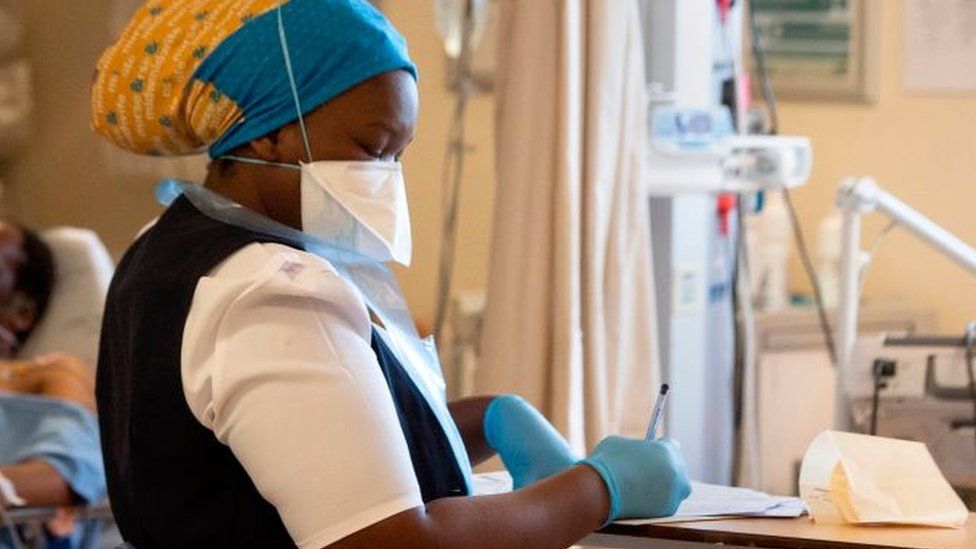
Critically Ill Covid-19 Patients ‘More Likely’ To Die In Africa
Hospital patients in Africa who are critically ill with Covid-19 are far more likely to die than in other parts of the world, a study suggests.
A shortage of critical care resources was a key problem, it says.
This includes both a lack of specialised staff and equipment such as blood oxygen monitors.
The researchers hope their work will help inform the way severely ill patients are managed where resources are limited.
Despite the high mortality rates of Covid-19 patients who have ended up in hospital in Africa, the continent in general has recorded some of the lowest numbers of deaths from the virus.
Africa, which has 17% of the world’s population, accounts for 4% of registered Covid-19 deaths.
Researchers looked at more than 3,000 patients in 64 hospital across 10 African countries for the study published in the Lancet medical journal.
They found that nearly half who needed intensive care died whereas the global average was less than a third.
“Mortality is way higher in Africa than any other region because of limited resources,” one of the leaders of the research, Prof Bruce Biccard from the University of Cape Town in South Africa.
“In fact only one of two patients who are referred to critical care actually get into critical care. And once they’re there, therapies we can provide are way less than they should be.”
The researchers also said that in some cases the resources that were available were underused.
“It is shocking to see that 68% of hospitals had access to dialysis but only 10% of the patients received it, as well as to see that proning [turning a patient on their front] was not optimised,” Dr Bruce Kirenga and Dr Pauline Byakika-Kibwika from Uganda’s Makerere University said, commenting on the research.
They highlighted the lack of skilled staff to use available equipment as well as poor maintenance.
Prof Biccard, who works at South Africa’s Groote Schuur Hospital, said that the findings showed that inequality in the distribution of vaccines around the world needed to be addressed.
“If you have limited critical care resources which can’t even cope at the moment, what we really need to focus on is vaccinations… because the one thing about vaccination is that it stops severe infections,” he said.

